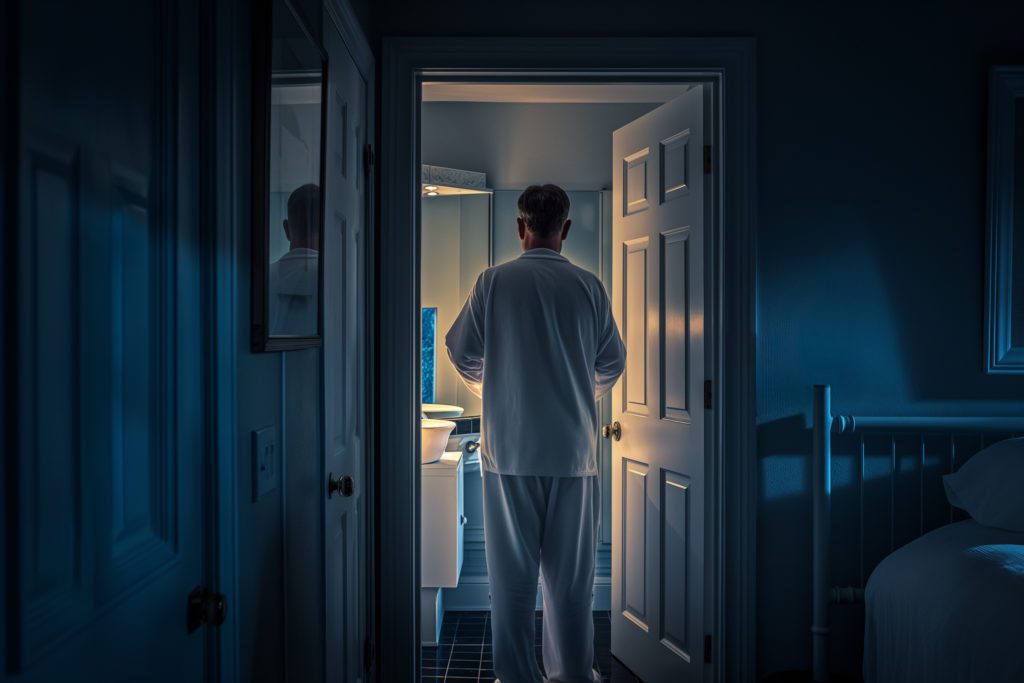
How Does Sleep Quality Affect Alzheimer’s Disease Risk?
Recent research shows that there is a link between Alzheimer’s Disease and sleep. Deep sleep plays a critical role in removing toxins from the brain related to dementia. Find out more.

Alzheimer’s disease is a type of dementia that slowly destroys thinking, and memory, and interferes with a person’s ability to perform even basic tasks. Currently, more than 6.9 million people are living with Alzheimer’s disease. The number of people with the disease is growing and fast. It is expected that by the year 2060, more than 13.8 million people will be diagnosed with Alzheimer’s.
So, are there ways to decrease the risk of developing this brain disease? Yes, there are. One of the ways has to do with sleep. Researchers have been busy looking at the role that sleep plays in Alzheimer’s disease. Although research is still ongoing, scientists agree that sleep is important when it comes to keeping the brain healthy.
Sleep and Alzheimer's Risk
What is the connection between sleep and later developing Alzheimer’s or another form of dementia? One study attempted to answer that question and found that getting less slow wave or deep sleep as you get older may increase the risk of dementia. The study, published in JAMA Neurology, followed participants over 17 years. It found that those who got less slow-wave sleep were more likely to later develop dementia.
The harmful protein beta-amyloid, which is associated with Alzheimer’s disease, is removed from the brain during the third stage of sleep. Slow wave or deep sleep occurs during this stage of sleep.
In the study above, scientists theorize that participants were more likely to develop Alzheimer’s when they lacked deep sleep because this prevents the brain from getting rid of harmful amyloid proteins. A buildup of these proteins in the brain is closely linked to neuron damage like that seen in Alzheimer’s.
During deep sleep, the brain clears another waste product — adenosine. This chemical is produced by neurons when we are awake. When we don’t get enough deep sleep, adenosine is not cleared fully. This leads to chronic inflammation, which can increase the risk of Alzheimer’s disease.
Toxic proteins and chemicals are cleared from the brain during the deep stage of sleep. While you are sleeping soundly, the body’s glymphatic system washes cerebrospinal fluid in and out of the brain. This helps get rid of toxins and prevents toxic proteins from building up and destroying the brain’s cells. When you don’t get enough sleep, toxins don’t get cleansed from the brain as they should. It is believed that this is one of the underlying factors related to the development of Alzheimer’s disease and similar conditions.
Things That Influence Deep Sleep
Deep sleep or slow-wave sleep is closely linked to a later risk of Alzheimer’s. It’s also linked to many other diseases. There are several factors that have a direct impact on the amount of deep sleep a person gets. Here are some of the things that can affect deep sleep.
Age
As we grow older, slow-wave or deep sleep naturally declines. Frequent awakenings to go to the bathroom, medications, and other factors can impact older adults’ ability to enjoy restorative deep sleep.
Sleep Disorders
Several parasomnias are likely to occur during deep sleep. These include sleepwalking, night terrors, and sleep eating. These can interrupt sleep, and make it to where you aren’t getting enough deep sleep.
Poor Sleep Habits
Poor sleep habits can have a direct impact on the amount of deep sleep you get. Poor sleep habits include things like using electronic devices at bedtime, drinking alcohol to wind down for bed, and taking long naps during the day. All of these things can impact your deep sleep.
Getting More Sleep
Scientists say that almost every disease that kills us later in life, including dementia and Alzheimer’s, is causally linked to a lack of sleep. Therefore, it’s important that you get enough sleep, especially deep sleep. There are a number of ways that you can do that.
Exercise on a Regular Basis
Exercising regularly helps you fall asleep faster, wake up refreshed, and sleep better overall. When you work out on a regular basis, it helps keep your internal clock or circadian rhythm in check. Staying physically active can help reduce stress, which can make it easier for you to fall asleep.
Physical activity also directly reduces the risk of Alzheimer’s by about 45 percent! That is because it helps to loosen amyloids from the brain cells. These proteins are related to Alzheimer’s.
Prioritize Sleep
It’s important to prioritize getting good sleep. High-quality sleep is important not only for preventing Alzheimer’s but for many areas of health. If you have sleep problems, it’s important to consult with your doctor and discuss solutions.
It’s essential to pay close attention to your sleep. You can use an app like Pillow to do this, along with your phone or a wearable device like an Apple watch. Pillow can track the total time that you spend sleeping, as well as how much time you spend in each stage of sleep. Sleep tracking apps aren’t perfect, but they are able to help you understand your sleep patterns better.
Focus on Good Sleep Hygiene
Sleep hygiene refers to the habits and behaviors that help you get a good night’s sleep. Good sleep hygiene can promote a more restful sleep. Below are some sleep hygiene tips to help you get better sleep:
- Sleep in a dark, comfortable environment.
- Go to bed at the same time and wake up at the same time each day.
- Minimize stimulants like caffeine six hours before bed.
- Take a warm bath or shower before bed.
- Keep your phone, tablet, and computer off.
- Avoid over-stimulating activities like high-intensity exercise two hours before bed.
- Do a relaxing activity before bed like journaling, mindfulness, or listening to sleep sounds. You can listen to relaxing sounds on Pillow.
It’s evident from the research that sleep quality is related to the risk of Alzheimer’s disease. Deep sleep, in particular, is closely connected to dementia. While there’s no proven way to prevent Alzheimer’s disease, adopting healthy sleep habits can potentially decrease your risk of developing this disease later in life.

Written by
Emily Mendez
Emily Mendez is a former therapist and mental health author. She is one of the leading voices in mental health. Emily's writing has appeared in eCounseling, SonderMind, and more. Emily is frequently interviewed by Healthline, Fatherly, INSIDER, Family Circle, and other national media for her advice and expert opinion on the latest mental health topics.
Download Pillow
Get help
Press & News
Legal
Connect
X (Twitter)
Company
Copyright © Neybox Digital Ltd.



